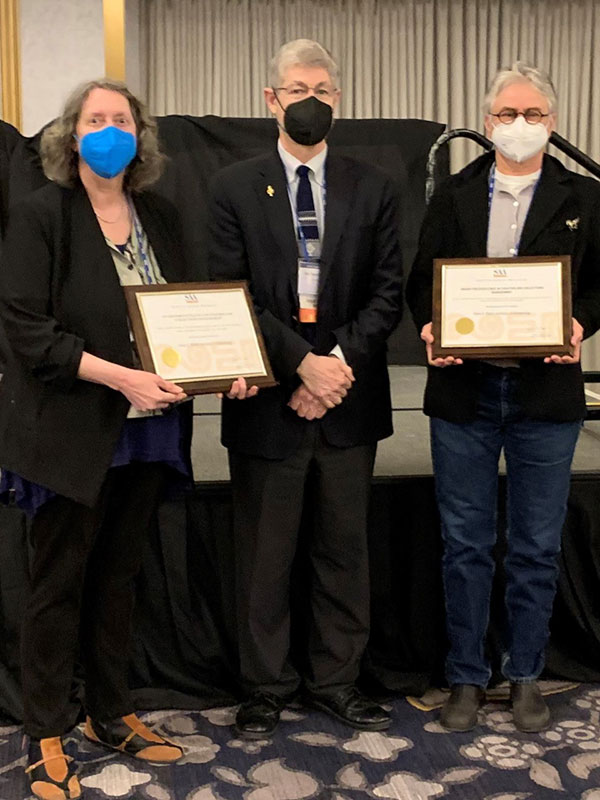It is the sheer diversity and the unexpected twists of scholarly passion that make her CV such an excellent read. I am still trying to get my hands on the first publication on her list “Contextual Perspectives on Archaeological Homicide” - her M.A. thesis. Partly I just want to read it, but I also have a slight concern that I ought to read it for my own protection, having been – so-to-speak – her partner in crime for many years. Tell me you don’t want to read “Smoking Sage” or “The Slapped Hand” or find out what she discovered from her research on the eccentric stone tools recovered from the Cenote of Sacrifice at Chichén Itzá? But then there are the articles that you need to read about value of alternative pedagogies and the tragedy of the looting of the GE Mounds site and the human rights of Native sovereignty.
April Sievert began her career as a lithic analyst and has sustained that interest over time, analyzing stone tools from Mexico, Peru, the Bahamas, France, and the US Midwest. But as the field of archaeology has grown and changed, her focus has shifted and expanded to encompass the human rights issues that have overtaken heritage studies. In fact, her own work has been a significant catalyst for expanding archaeology into the realms of political importance where the disposition of cultural property deserves to be recognized to amplify the voice of descendant groups.
Dr. Sievert was the director of the Glenn Black Laboratory of Archaeology for about a decade. She took a position that was weighted down by a complex heritage and breathed life into it – no small feat for an institutional collection of the ancient and the dead. But because of her heroic efforts, the significance of the laboratory became more widely known and the success of her vision is reflected in its rebirth as the IU Museum of Archaeology and Anthropology, with a new name and a new prominence in Indiana University, in the Bloomington community, in the state of Indiana, and in the discipline of archaeology. It is not surprising that the new museum is directed by Ed Herrmann - her former Ph.D. advisee. Working with committed scholars at IU, Sievert crowned her achievement with the repatriation of over 700 ancestors that had been held in the GBL collections back to the heritage site of Angel Mounds where they originated. Most importantly, in respecting the wishes and traditions of descendant groups for the repatriation of Ancestors this achievement brings overdue recognition to the sovereignty of Indiana’s Native Peoples. This is one of the most important acts of restitutive justice accomplished by archaeologists in my lifetime.
Above all things, Professor April Sievert is that – a professor. Her teaching talent is legendary in anthropology and students have been inspired by her, depended on her, admired her, and emulated her for 30 years. She exposes her students to the cutting edge of archaeological research with courses like Industrial Archaeology and People and Technology. She has an inimitable way of sharing ideas so that people learn from her without feeling taught. It is a pleasure to work with her because she never greets a new idea with objections; instead, she always tries to figure out how it could work.
I can’t possibly encapsulate the complex career of such a wonderful mind in this short comment; ask her to tell you about how she talked the National Science Foundation into giving us a half million dollars for an unfinished grant proposal. Find out if she even knows how many teaching awards she has won. In closing I’ll just say that April Sievert is an excellent scholar, teacher, co-conspirator - and a damn fine friend.
—Anne Pyburn

 The College of Arts
The College of Arts